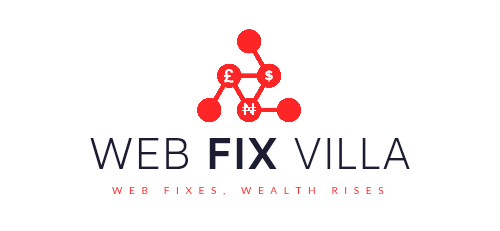
In a country like Nigeria, where economic shifts, inflation, and unemployment are frequent challenges, financial literacy is not just important—it’s crucial. Sadly, many Nigerians lack the basic financial knowledge required to make informed money decisions. This leaves them vulnerable to falling into debt, poor savings habits, and missed investment opportunities.
This guide breaks down the key financial principles every Nigerian should understand to manage their money effectively and improve their financial well-being.
1. What is Financial Literacy?
Financial literacy refers to the ability to understand and effectively use essential financial skills, such as budgeting, saving, investing, borrowing, and managing personal finances. It empowers you to make informed choices that help you avoid money pitfalls and grow your wealth over time.
💡 In simpler terms: It’s about understanding how money works and knowing how to make it work for you.
2. Why Financial Literacy Matters for Nigerians
Nigeria’s economy presents unique challenges, such as:
- Currency instability
- High inflation
- Unstable income, particularly for self-employed and informal workers
- Limited access to formal financial education
This makes financial literacy even more critical for navigating economic hardships and achieving long-term financial success. Here’s why it’s so important:
- Helps Avoid Debt: Understanding how loans, credit, and interest rates work can prevent you from falling into overwhelming debt.
- Fosters Better Saving Habits: Financially literate individuals tend to save regularly, preparing for both emergencies and future goals.
- Promotes Smart Spending: Knowing the difference between needs and wants helps ensure you spend your money wisely.
- Opens Doors to Wealth Creation: By understanding investment opportunities such as real estate, mutual funds, and agriculture, you can grow your wealth over time.
3. Key Areas of Financial Literacy You Should Master
To become financially literate, focus on the following essential areas:
📌 1. Budgeting
A budget helps you allocate your income wisely, ensuring you don’t overspend.
- How to Create a Simple Budget:
- List your total income (from salary, business, or side hustles)
- Track your expenses (rent, food, transportation, subscriptions)
- Prioritize savings and essential expenses
- Cut back on unnecessary spending
💡 Tip: Use apps like Spendee or Mint, or simply a notebook, to track your daily expenditures.
📌 2. Saving
Saving is the foundation of financial security. It prepares you for unexpected expenses and future opportunities.
- Types of Savings:
- Emergency Fund: Set aside 3–6 months of living expenses.
- Targeted Savings: Save for specific goals like rent, school fees, or vacations.
- Retirement Savings: Prepare for long-term financial stability. 💡 Tools: Use Nigerian fintech platforms like PiggyVest, Cowrywise, or Kuda to automate your savings.
📌 3. Debt Management
While debt is not inherently bad, it’s essential to manage it properly.
- Smart Debt Practices:
- Only borrow for productive purposes (e.g., business or education)
- Understand interest rates and repayment terms
- Always make timely payments to avoid penalties
- Avoid borrowing for non-essential lifestyle expenses
📌 4. Investing
Investing is crucial for growing your wealth over time. It involves understanding the risks and potential returns.
- Common Investment Options in Nigeria:
- Real Estate: Invest in land or property.
- Agriculture: Explore farming investments (e.g., via platforms like ThriveAgric).
- Stocks and Mutual Funds: Invest in local or international companies.
- Fixed Deposits or Treasury Bills: Low-risk, stable investment options.
💡 Rule of Thumb: Never invest in something you don’t fully understand. Always research thoroughly before committing your money.
📌 5. Retirement Planning
It’s important to plan for life after work, especially with fewer pension guarantees available today.
- Steps to Plan for Retirement:
- Set a retirement income goal
- Open a Pension Retirement Savings Account (RSA)
- Invest in long-term, income-generating assets
- Consider side hustles that can supplement your income in retirement
4. Common Financial Literacy Myths Nigerians Should Avoid
Let’s debunk some myths that hold people back financially:
- “You need a high income to save or invest”
Truth: Even small, consistent savings can grow over time. - “Banking is only for the rich”
Truth: Digital banking and microfinance services have made saving and investing more accessible to everyone. - “All debt is bad”
Truth: Some debts, like those for education or business investment, can be wise when managed properly. - “Financial literacy is for financial experts”
Truth: Financial literacy is essential for everyone, from students to business owners.
5. How to Improve Your Financial Literacy in Nigeria
You don’t need a formal education in finance to become money-smart. Here’s how you can keep learning:
- Read Financial Blogs and Books: Explore blogs like Nairametrics, BusinessDay, or read books such as The Smart Money Woman by Arese Ugwu.
- Follow Nigerian Financial Influencers:
- Arese Ugwu – Financial education for women
- Tosin Olaseinde (Money Africa) – Daily money tips
- Timi Dakolo (TimiTalksFinance) – Practical investing advice
- Attend Free Webinars and Financial Events: Platforms like UBA Learn, Paystack Blog, and YouTube offer free financial management webinars.
- Practice What You Learn: Knowledge is helpful, but action is key. Implement at least one new financial habit every month.
6. Final Thoughts: Your Money, Your Future
Financial literacy is your best defense against poverty and your greatest tool for building wealth. Whether you earn ₦50,000 or ₦500,000, mastering the art of managing money will always put you ahead of the game.
Key Takeaways: ✔️ Financial literacy empowers you to make smart, informed financial decisions
✔️ Learn to budget, save, invest, and manage debt
✔️ Keep learning through books, blogs, and hands-on practice
✔️ Start small, but start today
💡 Remember: The more you understand about money, the better equipped you’ll be to build the future you desire.












